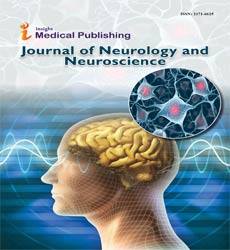Abstract
Hypothetical Link Between Osteopathic Suboccipital Decompression and Neuroimmunomodulation
Emerging evidence has begun to depict the molecular mechanisms by which inflammation is regulated via the vagus nerve. Specifically, inflammation can be controlled by neuroimmunologic circuitry, dependent upon vagal afferent and efferent fibers, operating in a reflexive continuum. This neuro-immune reflex, known as the inflammatory reflex arc, has some control on serum concentrations of numerous molecular mediators of inflammation such as C-reactive protein and interleukin-6. Importantly, both of these inflammatory proteins are elevated in acute ST-elevation myocardial infarction and are associated with worse cardiac sequelae. Suboccipital decompression by osteopathic manual treatment has been demonstrated to enhance vagal output to the heart, as measured by increased high frequency spectral power of heart rate variability, in a statistically significant manner further supported by a significant decrease in the low-/high frequency spectral power ratio among healthy adults compared to sham treatment and time control. Considering this association, we postulate that suboccipital decompression may stimulate the efferent branch of this vagal-mediated reflex, the cholinergic antiinflammatory pathway, thereby suppressing C-reactive protein and interleukin-6 levels post-ST-elevation myocardial infarction. Furthermore, we provide a detailed clinical study that can determine the validity of our hypothesis.
Author(s):
Joshua A Cuoco, Charles N Fennie and George K Cheriyan
Abstract | Full-Text | PDF
Share this

Abstracted/Indexed in
- Google Scholar
- Open J Gate
- Genamics JournalSeek
- The Global Impact Factor (GIF)
- China National Knowledge Infrastructure (CNKI)
- Directory of Research Journal Indexing (DRJI)
- WorldCat
- Proquest Summons
- Scientific Journal Impact Factor
- Secret Search Engine Labs
- Euro Pub
Open Access Journals
- Aquaculture & Veterinary Science
- Chemistry & Chemical Sciences
- Clinical Sciences
- Engineering
- General Science
- Genetics & Molecular Biology
- Health Care & Nursing
- Immunology & Microbiology
- Materials Science
- Mathematics & Physics
- Medical Sciences
- Neurology & Psychiatry
- Oncology & Cancer Science
- Pharmaceutical Sciences

